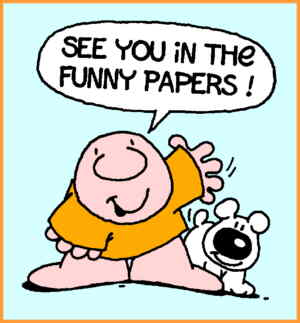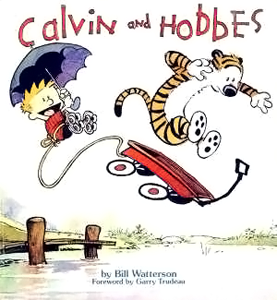In 1995, the BBC's television programme 'Bookworm' conducted a poll to find out the most loved poems in the UK. The results were as follows.
1 If -, Rudyard Kipling; 1865-1936
2 The Lady of Shalott, Alfred, Lord Tennyson; 1809-92
3 The Listeners, Walter de la Mare; 1873-1956
4 Not Waving but Drowning, Stevie Smith; 1903-1971
5 I Wandered Lonely as a Cloud, William Wordsworth; 1770-1850
6 To Autumn, John Keats; 1795-1821
7 The Lake Isle of Innisfree, W.B. Yeats; 1865-1939
8 Dulce et Decorum Est, Wilfred Owen; 1893-1918
9 Ode to a Nightingale, John Keats; 1795-1821
10 Aedh: He Wishes for the Cloths of Heaven, W.B. Yeats; 1865-1939
11 Remember, Christina Rossetti; 1830-94
12 Elegy Written in a Country Churchyard, Thomas Gray; 1716-71
13 Fern Hill, Dylan Thomas; 1914-53
14 Leisure, William Henry Davies; 1871-1940
15 The Highwayman, Alfred Noyes; 1880-1959
16 To His Coy Mistress, Andrew Marvell; 1621-78
17 Dover Beach, Matthew Arnold; 1822-88
18 The Tyger, William Blake; 1757-1827
19 Twelve Songs: IX ('Stop all the clocks'), W.H. Auden; 1907-73
20 Adlestrop (the place), Edward Thomas; 1878-1917
21 The Soldier, Rupert Brooke; 1887-1915
22 Warning, Jenny Joseph; 1932-
23 Sea-Fever, John Masefield; 1878-1967
24 Composed upon Westminster Bridge, September 3, 1802, William Wordsworth; 1770-1850
25 Sonnets from the Portuguese XLIII, Elizabeth Barrett Browning; 1806-61
26 The Love Song of J. Alfred Prufrock, T.S. Eliot; 1885-1965
27 Cargoes, John Masefield; 1878-1967
28 Jabberwocky, Lewis Carroll; 1832-98
29 The Rime of the Ancient Mariner, Samuel Taylor Coleridge; 1772-1834
30 Ozymandias, Percy Bysshe Shelley; 1792-1822
31 Stopping by Woods on a Snowy Evening, Robert Frost; 1874-1963
32 Abou Ben Adhem, Leigh Hunt; 1784-1859
33 Everyone Sang, Siegfried Sassoon; 1886-1967
34 The Windhover, Gerard Manley Hopkins; 1844-89
35 Do Not Go Gentle into That Good Night, Dylan Thomas; 1914-53
36 Sonnet 18, 'Shall I compare thee to a summer's day?', William Shakespeare; 1564-1616
37 When You Are Old, W.B. Yeats; 1865-1939
38 Naming of Parts, Henry Reed; 1914-86
39 The Darkling Thrush, Thomas Hardy; 1840-1928
40 Please Mrs Butler, Allan Ahlberg; 1938-
41 Kubla Khan, Samuel Taylor Coleridge; 1772-1834
42 Home-Thoughts, from Abroad, Robert Browning; 1812-89
43 High Flight (An Airman’s Ecstasy), John Gillespie Magee; 1922-41
44 Journey of the Magi, T.S. Eliot; 1885-1965
45 The Owl and the Pussy-Cat, Edward Lear; 1812-88
46 The Glory of the Garden, Rudyard Kipling; 1865-1936
47 The Road Not Taken, Robert Frost; 1874-1963
48 The Way through the Woods, Rudyard Kipling; 1865-1936
49 Anthem for Doomed Youth, Wilfred Owen; 1893-1918
50 Bloody Men, Wendy Cope; 1945-
51 Emmonsail’s Heath in Winter, John Clare; 1793-1864
52 La Figlia Che Piange, T.S. Eliot; 1885-1965
53 The Whitsun Weddings, Philip Larkin; 1922-80
54 The Ballad of Reading Gaol, Oscar Wilde; 1854-1900
55 I Remember, I Remember, Thomas Hood; 1799-1845
56 This Be the Verse, Philip Larkin; 1922-80
57 Snake, D.H. Lawrence; 1885-1930
58 The Great Lover, Rupert Brooke; 1887-1915
59 A Red, Red Rose, Robert Burns; 1759-1796
60 The Sunlight on the Garden, Louis MacNeice; 1907-63
61 The Old Vicarage, Grantchester, Rupert Brooke; 1887-1915
62 Diary of a Church Mouse, John Betjeman; 1906-84
63 Silver, Walter de la Mare; 1873-1956
64 Pied Beauty, Gerard Manley Hopkins; 1844-89
65 Prayer before Birth, Louis MacNeice; 1907-63
66 Macavity: The Mystery Cat, T.S. Eliot; 1885-1965
67 Afterwards, Thomas Hardy; 1840-1928
68 The Donkey, G.K. Chesterton; 1874-1936
69 My Last Duchess, Robert Browning; 1812-89
70 Christmas, John Betjeman; 1906-84
71 The Thought-Fox, Ted Hughes; 1930-98
72 Preludes, T.S. Eliot; 1885-1965
73 Love (III), George Herbert; 1593-1633
74 The Charge of the Light Brigade, Alfred, Lord Tennyson; 1809-92
75 I Am, John Clare; 1793-1864
76 The Hound of Heaven, Francis Thompson; 1859-1907
77 The Passionate Shepherd to his Love, Christopher Marlowe; 1564-93
78 The Song of Wandering Aengus, W.B. Yeats; 1865-1939
79 She Walks in Beauty, George Gordon, Lord Byron; 1788-1824
80 Loveliest of Trees, the Cherry Now, A.E. Housman; 1859-1936
81 The Flea, John Donne; 1572-1631
82 Ducks, F.W. Harvey; 1888-1957
83 An Arundel Tomb, Philip Larkin; 1922-80
84 Sonnet 116, 'Let me not to the marriage of true minds', William Shakespeare; 1564-1616
85 Ulysses, Alfred, Lord Tennyson; 1809-92
86 Snow, Louis MacNeice; 1907-63
87 Let Me Die a Youngman’s Death, Roger McGough; 1937-
88 The Ruined Maid, Thomas Hardy; 1840-1928
89 Toilet, Hugo Williams; 1942-
90 Futility, Wilfred Owen; 1893-1918
91 The Raven, Edgar Allan Poe; 1809-49
92 Tam o’ Shanter, Robert Burns; 1759-1796
93 Love’s Philosophy, Percy Bysshe Shelley; 1792-1822
94 The Song of Hiawatha, H.W. Longfellow; 1807-82
95 God’s Grandeur, Gerard Manley Hopkins; 1844-89
96 Chocolate Cake, Michael Rosen; 1954-
97 Jenny Kissed Me, Leigh Hunt; 1784-1859
98 Blackberry-Picking, Seamus Heaney; 1939-2013
99 The Prelude, William Wordsworth; 1770-1850
100 Warming Her Pearls, Carol Ann Duffy; 1955-





.jpg)



